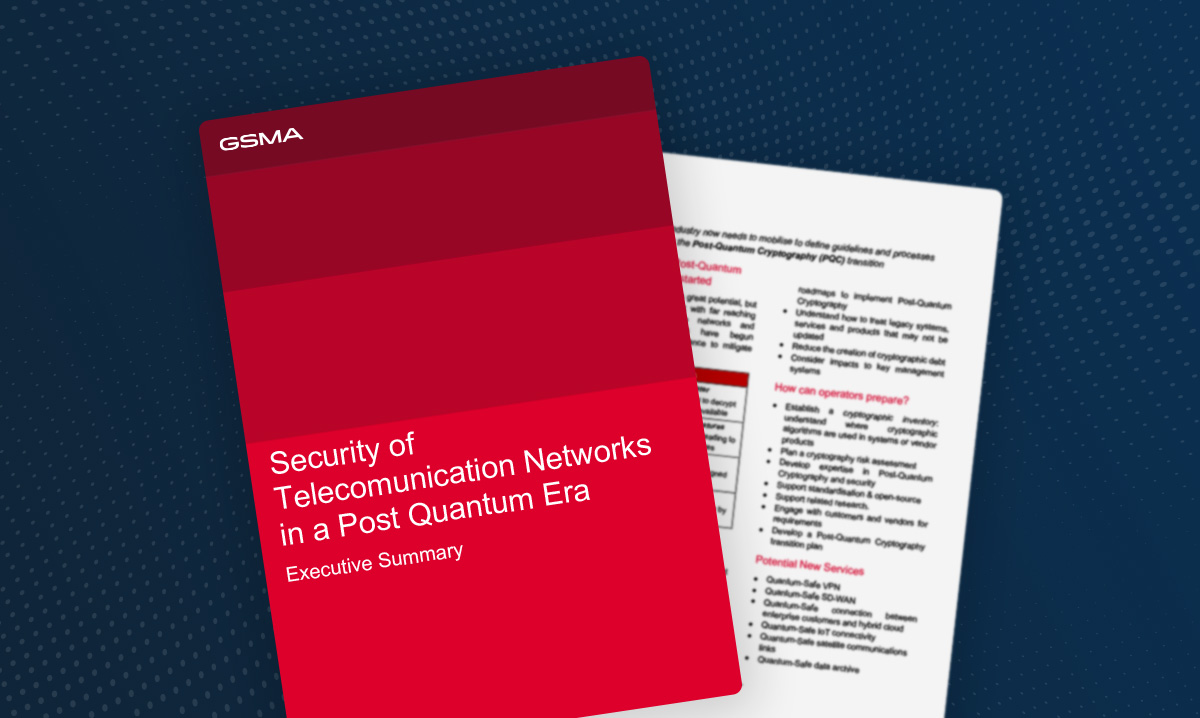The telecoms industry needs to mobilise now to define guidelines and processes for the post-quantum cryptography transition.
That’s the conclusion of a whitepaper developed by the representatives of 35 GSMA members last month including PQShield. The report notes that while quantum computers will have the power to solve computational problems that were previously thought impossible, they also pose a unique and potentially devastating threat to telecoms networks and their customers.
This is because quantum computers will be able to break the traditional encryption methods (particularly RSA and ECC) used to protect virtually all communications networks today. GSMA members agree that post-quantum cryptography is an essential future component of their networks, to ensure adequate protection against the threat.
The GSMA also highlights ‘harvest now, decrypt later’ (HNDL) and key management attacks as specific threats that telecoms networks and governments need to actively prepare for now, before it’s too late.
At Mobile World Congress 2023, telecoms industry and security specialists came together to work on transitioning to quantum-safe technology, resulting in the Post Quantum Telco Network Impact Assessment Whitepaper.
The whitepaper recommends that the telecoms industry prepares for the adoption of post-quantum cryptography by building an inventory of all the places cryptography is used to secure networks and systems, and collaborating across industry, standards, and open-source communities. Additionally, it advises that network operators and industry partners begin deploying post-quantum cryptography as algorithms are standardised by the US National Institute of Standards and Technology (NIST).
The bottom line? The longer organisations in the telecoms sector wait to act, the greater the potential harm to themselves and customers. And since the road to full quantum security will take time, the sooner they begin the transition, the better.
To find out more, get in touch with our team of experts here.

